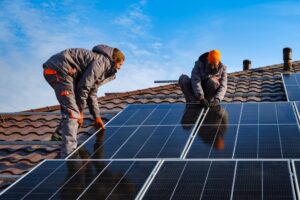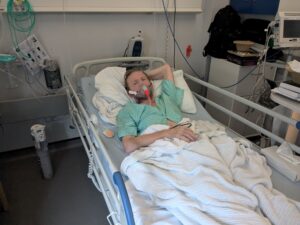Climate solutions charity Ashden are marking World Refugee Day by announcing £270,000 in new grants to refugee entrepreneurs providing clean energy solutions for heating and cooking in Africa.
The new grants are going to four projects in three countries: Kenya, Uganda and Ethiopia and have been awarded under Ashden’s Transforming Humanitarian Energy Access (THEA) programme, an international initiative designed to improve access to sustainable, clean and reliable energy in settings such as refugee camps and conflict-affected areas.
Its goal is to address the widespread reliance on polluting and expensive energy sources such as diesel generators and firewood, which have significant social, environmental, and health impacts.
Ashden has worked with the recipient organisations, developing the funding according to specific needs.
One of those recipients is Uganda’s Live in Green, which was founded by a refugee from the Democratic Republic of Congo to turn household waste into cooking briquettes. The grant will scale up their work producing briquettes and fuel-efficient cookstoves and will support jobs for hundreds of people in the settlement.
In Kenya, Okapi Green Energy will be able to provide more solar energy systems to small businesses in the Kakuma-Kalobeyi settlement, home to around 300,000 refugees. With solar power, these businesses can invest in lighting to trade later into the evening; stock higher value, refrigerated goods; and generate new revenues by charging people’s phones, laptops and other small appliances.
In Uganda, the funding will allow the South Sudanese Women Building Association to provide solar-powered grain milling services to farmers from local refugee and host communities. It will also train women and young people in entrepreneurship skills, and raise awareness of clean energy solutions among the wider community.
The Muruqmal Energy & Electric Cooperative in a refugee settlement in the Somali region of Ethiopia will be able to replace their diesel power supply with a clean, reliable solar power system, reducing operating costs as will as being cleaner energy source.
Ashden’s Head of International Programmes Isona Shibata said: ‘This is a moment of global uncertainty, with the number of forcibly displaced people at a record high, and brutal aid cuts putting many millions at risk. So it’s vital we accelerate refugee-led initiatives with a proven ability to tackle climate change as well as address energy poverty. Our grants will enable refugee energy entrepreneurs to create impact in some of the world’s most vulnerable and marginalised communities.’


















Leave a Reply